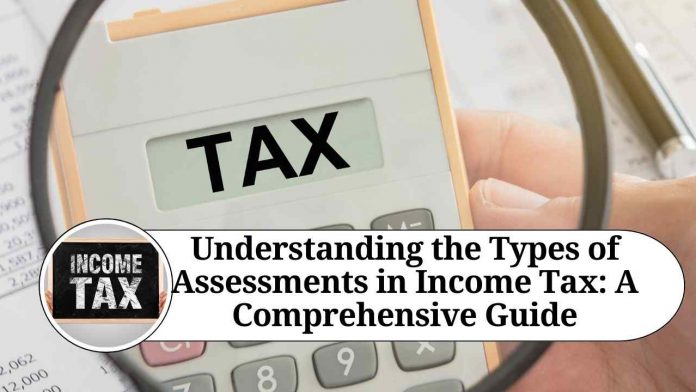Self-Assessment:
Self-assessment is a system of tax payment where taxpayers are responsible for assessing their own tax liability and paying the taxes due. Taxpayers must file a return and calculate the tax liability based on their own records and information. The tax authorities will not verify the accuracy of the taxpayer’s return unless there is a reason to do so.
Regular Assessment:
Regular assessment is a type of assessment where the tax authorities examine the return filed by the taxpayer and verify the information provided. The tax authorities may make inquiries, examine records, and assess the tax liability based on the information available to them. The tax authorities may also issue notices to the taxpayer to provide additional information or to attend an inquiry.
Best Judgment Assessment:
Best judgment assessment is made when a taxpayer fails to file a return or when the tax authorities are not satisfied with the return filed by the taxpayer. In this case, the tax authorities make an assessment to the best of their judgment based on the information available to them. The tax authorities may estimate the income of the taxpayer or apply a higher rate of tax to protect the revenue.
Protective Assessment:
Protective assessment is made when there is a dispute between the taxpayer and the tax authorities regarding the tax liability. In this case, the tax authorities may make an assessment at a higher rate than the one claimed by the taxpayer, to protect the revenue. The tax authorities may also require the taxpayer to furnish security or make a payment before the assessment is finalized.
Reassessment:
Reassessment is made when the tax authorities have reason to believe that the tax liability of a taxpayer has escaped assessment. In such cases, the tax authorities may reopen the assessment and make a fresh assessment based on the available information. The tax authorities may also issue notices to the taxpayer to provide additional information or to attend an inquiry.
Pre-assessment:
Pre-assessment is a preliminary assessment made by the tax authorities before the regular assessment. This is done to verify the correctness and completeness of the information provided by the taxpayer and to ensure that all necessary details have been provided. The tax authorities may issue notices to the taxpayer to provide additional information or to attend an inquiry.
conclusion
,understanding the different types of assessments in income tax is essential for taxpayers to comply with the tax laws and avoid any penalties or legal actions. Taxpayers should seek the advice of tax professionals to ensure that they file accurate and complete returns and comply with the income tax laws.
Other Related Blogs: Section 144B Income Tax Act
Frequently Asked Questions (FAQs)
Q.What is self-assessment in income tax?
Self-assessment is a system of tax payment where taxpayers are responsible for assessing their own tax liability and paying the taxes due. Taxpayers must file a return and calculate the tax liability based on their own records and information.
Q.What is regular assessment in income tax?
Regular assessment is a type of assessment where the tax authorities examine the return filed by the taxpayer and verify the information provided. The tax authorities may make inquiries, examine records, and assess the tax liability based on the information available to them.
Q.What is best judgment assessment in income tax?
Best judgment assessment is made when a taxpayer fails to file a return or when the tax authorities are not satisfied with the return filed by the taxpayer. In this case, the tax authorities make an assessment to the best of their judgment based on the information available to them.
Q.What is protective assessment in income tax?
Protective assessment is made when there is a dispute between the taxpayer and the tax authorities regarding the tax liability. In this case, the tax authorities may make an assessment at a higher rate than the one claimed by the taxpayer, to protect the revenue.
Q.What is reassessment in income tax?
Reassessment is made when the tax authorities have reason to believe that the tax liability of a taxpayer has escaped assessment. In such cases, the tax authorities may reopen the assessment and make a fresh assessment based on the available information.
Q.What is pre-assessment in income tax?
Pre-assessment is a preliminary assessment made by the tax authorities before the regular assessment. This is done to verify the correctness and completeness of the information provided by the taxpayer and to ensure that all necessary details have been provided.
Q.Are taxpayers required to file returns for all types of assessments in income tax?
Yes, taxpayers are required to file returns for all types of assessments in income tax. The only exception is best judgment assessment, where the tax authorities make an assessment based on the information available to them when the taxpayer fails to file a return.
Q.Can taxpayers challenge the assessments made by the tax authorities?
Yes, taxpayers can challenge the assessments made by the tax authorities if they are not satisfied with the assessment. Taxpayers can file an appeal with the appropriate appellate authority to challenge the assessment.




















